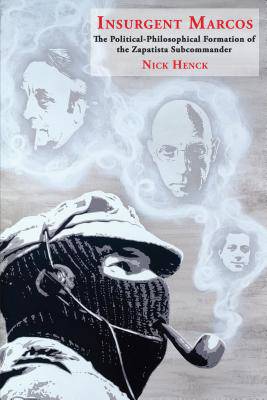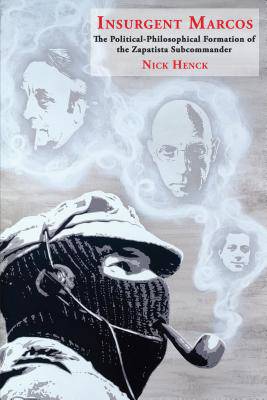
Bedankt voor het vertrouwen het afgelopen jaar! Om jou te bedanken bieden we GRATIS verzending (in België) aan op alles gedurende de hele maand januari.
- Afhalen na 1 uur in een winkel met voorraad
- Gratis thuislevering in België vanaf € 30
- Ruim aanbod met 7 miljoen producten
Bedankt voor het vertrouwen het afgelopen jaar! Om jou te bedanken bieden we GRATIS verzending (in België) aan op alles gedurende de hele maand januari.
- Afhalen na 1 uur in een winkel met voorraad
- Gratis thuislevering in België vanaf € 30
- Ruim aanbod met 7 miljoen producten
Zoeken
€ 45,95
+ 91 punten
Omschrijving
For over two decades now Subcommander Marcos has acted as military leader and spokesperson of Mexico's Zapatista movement. In the process of doing so he has also become a key figure in the anti-capitalist and anti-globalization movements. There has been little attempt however to examine in significant detail the political-philosophical influences at work upon this important contemporary thinker. The present study aims to rectify this by establishing which political-philosophical currents Marcos was exposed to during his formative years as a student at the National Autonomous University of Mexico, and then examining the Subcommander's discourse in order to ascertain the extent to which these persisted in his thinking years later. Concretely, what we discover is that in his youth Marcos was especially influenced by his reading of Louis Althusser, Michel Foucault, and Nicos Poulantzas, and that certain core components of their thinking helped to form, and indeed continued to inform, the Subcommander's political philosophy.
Specificaties
Betrokkenen
- Auteur(s):
- Uitgeverij:
Inhoud
- Aantal bladzijden:
- 314
- Taal:
- Engels
- Reeks:
Eigenschappen
- Productcode (EAN):
- 9781945234033
- Verschijningsdatum:
- 9/01/2017
- Uitvoering:
- Paperback
- Formaat:
- Trade paperback (VS)
- Afmetingen:
- 152 mm x 229 mm
- Gewicht:
- 462 g

Alleen bij Standaard Boekhandel
+ 91 punten op je klantenkaart van Standaard Boekhandel
Beoordelingen
We publiceren alleen reviews die voldoen aan de voorwaarden voor reviews. Bekijk onze voorwaarden voor reviews.









